“I Understand Why He Left”: Guardiola’s Reflections on Julian Alvarez’s Departure and Manchester City’s Striking Dilemma

In the ever-evolving landscape of elite European football, where ambition, opportunity, and sporting glory intersect in complex ways, few stories capture the nuanced reality of modern player management quite like Julian Alvarez’s departure from Manchester City. Speaking candidly ahead of City’s Premier League encounter with Everton on Saturday, October 18, 2025, Pep Guardiola offered a revealing glimpse into his thoughts about the Argentine striker who chose to leave the Etihad Stadium despite being part of one of the most successful teams in football history.
“Maybe I’d love to have him… but I understand why he left,” Guardiola told reporters, his words carrying a mixture of wistfulness and pragmatic acceptance. This statement encapsulates the central tension that ultimately led to Alvarez’s 2024 transfer to Atletico Madrid: how does an exceptionally talented player reconcile being part of a trophy-laden squad with the natural desire to be the undisputed focal point of a team’s attacking strategy?
The Context of a Trophy-Laden Yet Frustrating Tenure
Julian Alvarez’s time at Manchester City was, by any conventional measure, extraordinarily successful. During his two-year stint at the club, the Argentine international accumulated silverware at a rate that most players can only dream of throughout their entire careers. He won virtually every major trophy available—the Premier League, the Champions League, the FA Cup, the FIFA Club World Cup—with only the Carabao Cup eluding his collection. Most notably, he played an integral role in City’s historic 2023 treble, contributing goals and assists during crucial moments of that unprecedented campaign.
Yet beneath the surface of this remarkable success lay a growing frustration that would eventually prove decisive in Alvarez’s career trajectory. Despite his undeniable quality, versatility, and work ethic, the young Argentine found himself operating in the considerable shadow of Erling Haaland, Manchester City’s Norwegian goal-scoring phenomenon whose physical presence and clinical finishing made him Guardiola’s automatic first choice for the central striking position.
This dynamic created a complex situation for all parties involved. Alvarez possessed the technical ability, tactical intelligence, and finishing prowess to be a starting striker for virtually any club in world football. His performances for Argentina, where he featured prominently in their 2022 World Cup triumph alongside Lionel Messi, demonstrated his capacity to excel on the biggest stages. However, at Manchester City, he frequently found himself deployed in wider positions, utilized as a tactical substitute, or rotated in and out of the starting lineup depending on opposition and competition.
For a player of Alvarez’s ambition and self-belief—qualities essential for any elite footballer—this arrangement, while yielding team success, inevitably raised questions about individual development and career satisfaction. How long should a player in his prime years accept a supporting role, even within the most successful team in European football? At what point does the pursuit of personal ambition justify leaving guaranteed trophies behind?
The Move to Atletico Madrid: A Calculated Career Decision
When Julian Alvarez completed his transfer to Atletico Madrid in 2024, the move represented a calculated gamble on his part—a decision to prioritize guaranteed playing time and central importance over the near-certainty of continued silverware at Manchester City. Atletico, one of Spain’s most prestigious clubs and perennial contenders in both La Liga and the Champions League, offered him precisely what he craved: the opportunity to be the focal point of a top European club’s attacking strategy.
The choice to join Diego Simeone’s side was particularly intriguing given the Argentine manager’s tactical preferences. Simeone has built his reputation on defensive solidity, tactical discipline, and pragmatic approaches to matches, quite different from Guardiola’s possession-dominated philosophy. However, within Simeone’s system, Alvarez would be the undisputed attacking reference point—the player around whom offensive strategies would be constructed and to whom creative responsibilities would flow.
This transition also represented a homecoming of sorts to Spanish-speaking football culture, potentially easing Alvarez’s adjustment period. While Manchester offered a fantastic football environment, the cultural and linguistic familiarity of Spain, combined with working under a fellow Argentine in Simeone, likely played supporting roles in his decision-making process.
The financial aspects of the move, while not publicly disclosed in complete detail, undoubtedly reflected Alvarez’s enhanced status. Moving from a squad rotation option at City to the primary striker at Atletico presumably came with improved personal terms that recognized his elevated importance to his new club’s ambitions.
Thriving in Madrid: Validation of a Bold Decision
The subsequent months have vindicated Julian Alvarez’s decision in the most emphatic manner possible: through outstanding performances and prolific goalscoring. As the 2025-26 season progresses, Alvarez has established himself as one of La Liga’s most lethal strikers, regularly finding the net and demonstrating precisely why he believed himself capable of leading the line for a European giant.
His success at Atletico Madrid represents more than just statistical accumulation; it reflects a player fulfilling his potential in a role that maximizes his strengths. As the central reference point in Simeone’s attack, Alvarez has the freedom to roam between channels, link play with midfielders, and occupy central defenders in ways that his Manchester City role often didn’t permit. He’s not competing with Haaland for touches in the penalty area or being asked to sacrifice his natural game to accommodate another striker’s strengths.
The numbers tell a compelling story. Alvarez’s goal-scoring rate at Atletico has exceeded his output per ninety minutes at Manchester City, suggesting that consistent central positioning and tactical responsibility have unlocked additional dimensions of his game. Beyond goals, his overall influence on matches—measured through key passes, successful dribbles, and defensive work rate—demonstrates a player operating with confidence and clarity about his role.
Perhaps more importantly, Alvarez’s performances have translated into team success for Atletico Madrid. His contributions have helped establish them as genuine contenders in La Liga’s title race and credible threats in European competition. This vindication works on multiple levels: it proves Alvarez’s belief in his abilities was justified, validates Atletico’s significant investment in him, and demonstrates that leaving guaranteed trophies for greater prominence was a calculated risk rather than a rash decision.
Guardiola’s Perspective: Admiration Mixed With Acceptance
Pep Guardiola’s recent comments about Julian Alvarez reveal a manager who, despite operating at the pinnacle of football management and accustomed to making ruthless decisions in pursuit of success, possesses genuine appreciation for players’ individual aspirations and career trajectories. His acknowledgment that he would “love to have him” back reflects honest assessment of Alvarez’s quality and what he brought to Manchester City’s squad.
This isn’t merely polite rhetoric or diplomatic management-speak. Guardiola has always valued players who combine technical excellence with tactical intelligence and tireless work ethic—qualities Alvarez possessed in abundance. The Argentine’s versatility allowed Guardiola tactical flexibility, his pressing intensity fit City’s high-energy style, and his finishing provided a reliable goal threat whether starting or coming from the bench.
However, Guardiola’s addition that he “understands why he left” demonstrates mature recognition of the limitations even the most successful teams face when managing ambitious players. The Catalan manager has encountered similar situations throughout his career—players of genuine quality who, despite being part of trophy-winning squads, ultimately prioritized regular starting opportunities over squad rotation at elite clubs.
This understanding likely stems from Guardiola’s own playing career, where he experienced the dynamics of squad hierarchies and competition for places at Barcelona. It also reflects lessons learned from previous managerial situations where retaining unhappy or unfulfilled players, regardless of their quality, can create dressing room tensions and undermine team cohesion.
Guardiola’s praise for Alvarez’s current situation—”now he’s at one of the best clubs in the world, Atleti, playing for a top class manager, players, performing unbelievably”—further illustrates his broader perspective on player development and career management. Rather than expressing bitterness about losing a valuable squad member, he celebrates Alvarez’s success in an environment that better suits his ambitions.
This attitude benefits Manchester City’s reputation in the transfer market. Players and their representatives notice how clubs treat departing personnel. Guardiola’s respectful acknowledgment of Alvarez’s decision, combined with genuine praise for his subsequent success, sends positive signals to future transfer targets that City operates with class and understanding regarding players’ career aspirations.
The Haaland Factor: When Excellence Creates Complications
Central to understanding Julian Alvarez’s departure is the towering presence—both literal and figurative—of Erling Haaland in Manchester City’s attacking structure. The Norwegian striker’s arrival from Borussia Dortmund transformed City’s offensive dynamics, providing a physical, clinical finisher whose goal-scoring numbers defied conventional expectations even within elite football.
Haaland’s impact was immediate and overwhelming. His debut season saw him shatter Premier League goal-scoring records, winning the Golden Boot while helping City secure the treble. His combination of pace, power, positioning, and finishing created a unique profile that made him virtually undroppable when fit. Guardiola, despite his historical preference for fluid, interchangeable attacking systems, adapted his tactics to maximize Haaland’s extraordinary abilities.
This tactical evolution, while enormously successful in terms of results, inevitably impacted other attacking players’ roles. Alvarez, who had initially joined City with expectations of significant playing time, found the landscape shifted by Haaland’s presence. Rather than competing for the central striker position with aging or inconsistent alternatives, he was competing with a generational talent entering his prime years.
The contrast in playing styles also limited Alvarez’s opportunities to deputize directly for Haaland. The Norwegian’s game revolves around occupying central defenders, attacking crosses, and clinical finishing in the penalty area. Alvarez, while certainly capable of scoring goals, offered different strengths: greater mobility, superior link-up play, and ability to drop deeper and create for others. These differences meant that when Guardiola chose to rest or rotate Haaland, he often adjusted the entire attacking structure rather than simply inserting Alvarez into the same role.
From Alvarez’s perspective, waiting for Haaland to decline or depart represented an unacceptable career strategy. The Norwegian is only slightly older and shows no signs of diminishing powers. Realistically, Haaland could remain City’s first-choice striker for another five to seven years, potentially encompassing the prime years of Alvarez’s career. Accepting permanent backup status under these circumstances would have been a questionable decision for someone of his ambitions and abilities.
Comparing Career Trajectories: Different Paths to Success
Julian Alvarez’s decision to leave Manchester City for greater prominence at Atletico Madrid invites comparisons with other players who’ve faced similar crossroads in their careers. Football history offers numerous examples of talented players choosing different paths when confronted with limited opportunities at elite clubs, with varying results.
Some players prioritize silverware and prestige over personal recognition, accepting squad roles at super clubs. Think of players like Solskjaer at Manchester United or Chicharito Hernandez at his peak—strikers who excelled in supporting roles, made crucial contributions, and built successful careers without being undisputed starters. This path offers trophy accumulation, financial rewards, and the prestige of representing elite institutions.
Others, like Alvarez, prioritize being the focal point of their teams, even if it means leaving guaranteed success behind. Alexis Sanchez’s departure from Barcelona to Arsenal represented a similar calculation—trading a supporting role in an all-conquering team for central importance at a merely very good one. More recently, Ferran Torres left Manchester City for Barcelona seeking greater prominence, though with mixed results.
The key variable in these decisions is timing. Players who leave too early might miss out on development opportunities and trophy accumulation that prove irreplaceable. Those who stay too long risk their prime years passing without establishing themselves as stars in their own right, potentially limiting future opportunities and overall career trajectory.
Alvarez’s timing appears sound. He stayed long enough at Manchester City to win major trophies, learn from one of football’s greatest managers, and raise his profile significantly. He left early enough to still have most of his prime years ahead, allowing him to establish himself as a genuine star rather than merely a talented squad player. His age when departing—mid-twenties with significant experience but still room for development—represented an optimal window for such a transition.
His success at Atletico Madrid validates this timing. Had he struggled in Spain, critics would question whether he’d proven capable of leading a team’s attack at the highest level. Instead, his prolific form demonstrates that his self-assessment was accurate: he possessed the quality to be a star, not merely a supporting actor.
The Broader Implications for Squad Management
Julian Alvarez’s departure from Manchester City illuminates broader challenges facing elite clubs in the modern football landscape. How do you balance squad depth necessary for competing across multiple competitions with the career ambitions of genuinely talented players who see themselves as potential stars rather than rotation options?
This tension has intensified in recent years as player power has grown, transfer fees have skyrocketed, and the awareness of career windows has become more acute. Players, advised by sophisticated agents and surrounded by support networks, increasingly view their careers through strategic lenses. They understand that their peak years are limited and that decisions made in their mid-twenties can define their entire careers.
For clubs like Manchester City, operating at the absolute pinnacle of European football, this creates complex dynamics. They need squad depth to compete for four or five trophies annually. Injuries, fixture congestion, and tactical variations demand high-quality alternatives across all positions. However, recruiting these quality alternatives becomes increasingly difficult when ambitious players prioritize playing time over trophy potential.
The Alvarez situation demonstrates these competing pressures perfectly. City genuinely valued him as a player—his quality was never in question. They presumably wanted to retain him, recognizing his contributions and potential. However, they couldn’t guarantee him the starting opportunities he sought without either rotating Haaland more extensively (potentially suboptimal for results) or fundamentally changing their tactical approach (unnecessary given their success).
Alvarez, meanwhile, faced his own calculations. Stay at City, continue winning trophies, but accept limited starring opportunities? Or move to another elite club where his importance would be undisputed? Neither option was obviously superior—both carried trade-offs between different forms of success and satisfaction.
The resolution—Alvarez’s departure—probably represented the optimal outcome for all parties. City received a substantial transfer fee, allowing them to reinvest in their squad. Alvarez gained the platform he desired and has thrived in that environment. Both parties’ reputations emerged enhanced: City for handling the situation professionally, Alvarez for backing himself and delivering on his belief.
Lessons for Future Player Management
The Alvarez saga offers several lessons for how elite clubs might approach similar situations in the future. First, honest communication appears crucial. Guardiola’s recent comments suggest that City was transparent with Alvarez about his likely role and the competition he faced. This honesty, while perhaps disappointing for the player, allowed him to make an informed decision rather than harboring false hopes about his situation.
Second, respecting players’ ambitions, even when they conflict with the club’s preferences, builds long-term reputation value. Guardiola’s understanding tone and genuine praise for Alvarez’s subsequent success contrasts sharply with managers who criticize departing players or question their decisions. This respectful approach enhances City’s ability to attract future talents who know the club will treat them fairly even if circumstances don’t work out.
Third, the situation highlights the importance of recruitment clarity. When City signed Alvarez, presumably both parties had certain expectations about his role and opportunities. The subsequent arrival of Haaland changed those calculations fundamentally. In future, clubs might need to be more explicit about potential scenarios that could impact a player’s situation, even if those scenarios seem unlikely at signing.
Fourth, the case demonstrates the value of timing in player departures. Rather than allowing Alvarez’s situation to fester for years, creating dressing room tension and declining asset value, City facilitated his departure relatively quickly once it became clear his ambitions couldn’t be met. This decisiveness prevented a problematic situation from worsening.
Finally, Alvarez’s success validates the principle that career decisions should be based on playing time and development opportunities, not merely prestige and trophy potential. His thriving at Atletico Madrid demonstrates that talented players who believe in themselves are often right to seek environments where they can be stars rather than accepting supporting roles at even more successful clubs.
The Argentine Connection: National Team Implications
An often-overlooked dimension of Julian Alvarez’s career decisions involves his status within the Argentina national team. As a key member of the squad that won the 2022 World Cup, Alvarez has established himself as an important player for his country. However, maintaining that status requires consistent club performances and regular playing time.
During his time at Manchester City, balancing club rotation with national team importance created interesting dynamics. His limited starting opportunities at City didn’t immediately impact his Argentina role, partly because his World Cup performances had earned him credit and partly because national team managers often value players at elite clubs regardless of their exact role.
However, over longer periods, lack of regular club football can impact national team selection. Coaches prefer players who are match-fit, confident from regular performances, and operating at their highest level. Alvarez’s move to Atletico Madrid, where he plays week-in, week-out as the main striker, strengthens his claim to consistent Argentina selection.
This consideration likely factored into his decision-making. Argentina’s next major tournament cycle—the 2026 World Cup and subsequent competitions—will define the latter part of Alvarez’s international career. Ensuring he enters those tournaments as a regular starter at a major club, rather than a squad player, potentially impacts both his national team role and his overall legacy in Argentine football.
The fact that Atletico is managed by Diego Simeone, an Argentine icon with deep understanding of his country’s footballing culture, adds another dimension. Simeone’s presence likely eased Alvarez’s transition and provides someone who inherently understands the pressures and expectations facing Argentine players.
Financial Considerations and Market Value
While football romantics prefer to focus on sporting considerations, the financial dimensions of Julian Alvarez’s transfer cannot be ignored. His move from Manchester City to Atletico Madrid presumably involved a substantial transfer fee, reflecting his age, ability, and potential.
From Manchester City’s perspective, selling Alvarez while his value remained high represented sound business. Had they retained an increasingly unhappy player whose game time remained limited, his market value might have gradually declined as he approached his late twenties without establishing himself as a guaranteed starter. Selling when his stock was high, enhanced by his World Cup triumph and contributions to City’s success, maximized their return on investment.
For Atletico Madrid, investing significantly in Alvarez represented a statement of ambition and a calculated bet on his ability to lead their attack. The fee they paid presumably reflected confidence that he could justify the investment through performances and goals, while also considering his potential resale value should circumstances change.
Alvarez’s personal terms likely improved significantly with the move. Transitioning from a squad rotation player to the focal point of a club’s attack typically comes with enhanced wages that reflect increased responsibility and importance. This financial improvement, combined with greater playing time and prominence, made the move attractive on multiple levels.
The broader market implications are also noteworthy. Alvarez’s transfer and subsequent success demonstrate continuing demand for proven, versatile strikers in their mid-twenties. His case study will influence future negotiations involving similar players, establishing benchmarks for fees and wages that reflect both current ability and future potential.
Looking Forward: What’s Next for Both Parties
As the 2025-26 season progresses, both Julian Alvarez and Manchester City continue their respective journeys with the transfer now firmly in the past. For Alvarez, the challenge involves maintaining his current form and helping Atletico Madrid achieve their ambitions in both domestic and European competition. Consistency will be crucial—transforming his hot start into sustained excellence over multiple seasons.
His trajectory at Atletico will significantly impact his long-term legacy. If he continues thriving, helps deliver major trophies, and establishes himself as one of Europe’s elite strikers, his decision to leave Manchester City will be remembered as brave and justified. Should his form dip or Atletico fail to compete at the highest level, questions might arise about whether leaving guaranteed success was premature.
For Manchester City, life after Alvarez continues with Haaland as their undisputed attacking centerpiece. However, the club must continue addressing squad depth in forward positions, particularly given the Norwegian’s injury history and the demands of competing across multiple competitions. Finding players willing to accept rotation roles behind Haaland remains challenging, potentially requiring creative recruitment strategies or tactical adjustments.
Guardiola’s comments about loving to have Alvarez back, while likely sincere, also reflect strategic thinking. Should circumstances change—whether through Haaland’s form, fitness, or future transfer decisions—maintaining positive relationships with former players leaves doors open for unexpected returns. While unlikely in Alvarez’s case given his success at Atletico, stranger things have happened in football.
The relationship between the clubs, meanwhile, remains respectful and professional. Both operate at Europe’s highest levels and will undoubtedly encounter each other in Champions League competition or potentially in transfer negotiations involving other players. How they handled the Alvarez situation—professionally, respectfully, and to mutual benefit—sets positive precedents for future interactions.
Conclusion: A Tale of Ambition, Respect, and Mutual Success
Julian Alvarez’s journey from Manchester City to Atletico Madrid represents a modern football narrative where ambition, timing, and self-belief intersect with the realities of squad hierarchies at elite clubs. His decision to leave guaranteed trophies in pursuit of greater personal prominence reflected mature assessment of his career trajectory and confidence in his abilities.
Pep Guardiola’s recent comments—acknowledging he would love to have Alvarez back while understanding why he left—capture the essential dynamic at play. This wasn’t a case of a player failing to meet expectations or a club mismanaging talent. Rather, it represented a situation where everyone acted reasonably, yet circumstances made separation the optimal outcome.
Alvarez’s subsequent success at Atletico Madrid validates his decision and demonstrates that talented players who believe in themselves are often right to seek environments where they can be stars rather than supporting actors. His prolific form and central importance to Atletico’s ambitions contrast sharply with the rotation role he would likely still be occupying at Manchester City.
For Manchester City, the situation offered valuable lessons about managing ambitious players and the limitations even the most successful clubs face when trying to satisfy everyone’s career aspirations. Guardiola’s handling of the situation—transparent, respectful, and ultimately facilitating Alvarez’s departure—reflects well on the club’s professionalism and understanding of players’ perspectives.
The story also illuminates broader trends in modern football: the increasing sophistication of career management, the growing willingness of players to prioritize playing time over immediate trophy accumulation, and the challenges elite clubs face in maintaining squad depth while satisfying individual ambitions.
As Alvarez continues thriving in Madrid and Manchester City pursues further success with Haaland leading their attack, both parties can reflect positively on how they handled a complex situation. Sometimes in football, as in life, the best outcome involves recognizing when paths must diverge, respecting each other’s decisions, and celebrating subsequent success rather than dwelling on what might have been.
Guardiola’s acknowledgment that he understands why Alvarez left, combined with his genuine praise for the striker’s current performances, encapsulates mature wisdom about football’s realities. Not every talented player can be a star at every club, not every career decision has an obviously correct answer, and sometimes the most professional response to diverging ambitions is respectful separation and continued mutual appreciation.

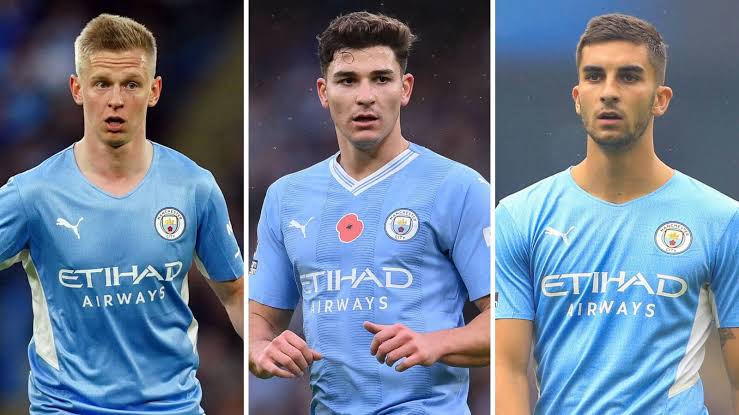







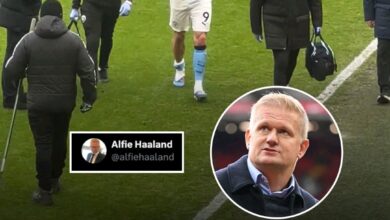
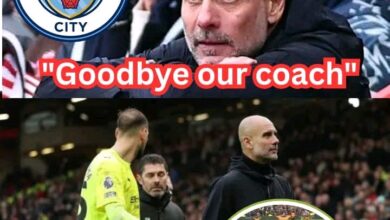

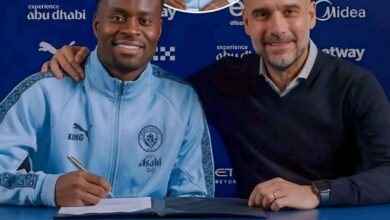
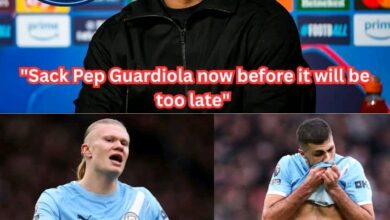
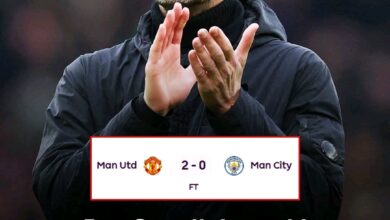
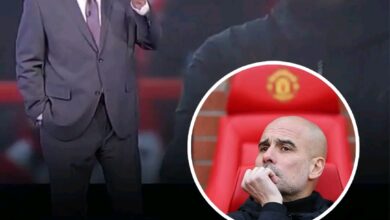
It good to have good players at city .Our management must be confidency on not selling such good players. Judge and then act in a proper way so that any player will re want to join back early without being called